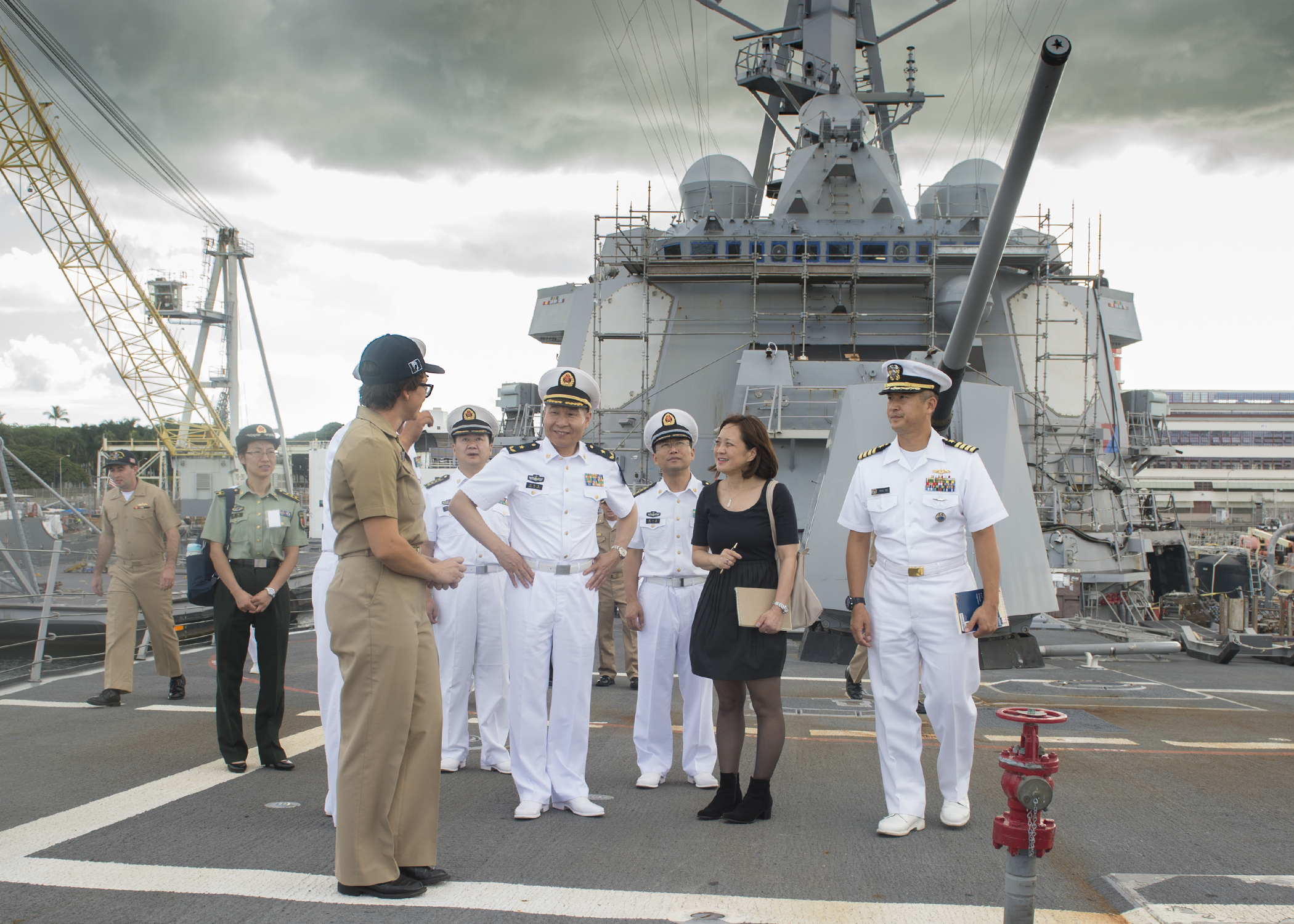U.S. and Chinese military delegations met in Hawaii for the first time in two years to discuss safety on the high seas and in the skies following instances of unsafe Chinese military maneuvers, the U.S. military said in a statement Friday.
Delegations from the Chinese Peoples’ Liberation Army and U.S. Navy and Air Force officials controlled by Indo-Pacific Command (INDOPACOM) met Wednesday and Thursday to discuss repeated unsafe and unprofessional instances the U.S. had warned could cause injuries or escalation, according to a statement. It was the second instance of direct military-to-military contact between the U.S. and China since Beijing abruptly broke off engagement in August 2022, adding to tensions between the competitors.
“The Military Maritime Consultative Agreement working group is USINDOPACOM’s primary means to directly discuss air and maritime operational safety with the PLA,” Army Col. Ian Francis, who headed the U.S. delegation to the talks, said in a statement. “The United States will continue to operate safely and professionally in the Indo-Pacific wherever international law allows, and we take this responsibility seriously.” (RELATED: While Eyes Are On The Middle East, The US Navy Has Been Staring Down China Near Taiwan)
“Open, direct, and clear communications with the PLA — and with all other military forces in the region — is of utmost importance to avoid accidents and miscommunication,” Francis said.
President Joe Biden announced a resumption of military talks with China in November after meeting in-person with Chinese President Xi Jinping, signaling a warming of communication channels between the U.S. and Chinese defense and military establishments.
Biden again spoke with Xi on Tuesday on topics including military communication and risks related to Taiwan and Artificial Intelligence.
The Pentagon has warned about the dangers of a prolonged disruption in military-to-military communication, including increasing the chance of accidental escalation during one of Beijing’s many aggressive air interceptions of U.S. aircraft or threats to Taiwan and U.S. allies in the region.
Francis said the military is looking “forward to future productive discussions to safeguard the safety of our military operators in the region.”

171117-N-WY954-027 PEARL HARBOR (Nov. 17, 2017) Rear Adm. Wang Dazhong, Deputy Chief of Staff of People’s Liberation Army (PLA) Navy and his staff are given a tour of the guided-missile destroyer USS William P. Lawrence (DDG 110) by Ens. Sarah Cox. (U.S. Navy photo by Mass Communication Specialist 2nd Class Robin Peak/Released)
In January, Dr. Michael Chase, deputy assistant secretary of Defense for China, Taiwan and Mongolia, met with Maj. General Song Yanchao, deputy director of the Central Military Commission Office for International Military Cooperation, to hold formal talks on U.S.-China relations and global security, according to a readout of the talks provided by the Pentagon.
Chairman of the Joint Chiefs of Staff Gen. C. Q. Brown, Jr., and his counterpart in Beijing, Gen. Liu Zhenli, also spoke by videoconference over a variety of “global and regional security issues,” the Joint Chiefs office said in a statement in December.
PRC leaders frequently stonewalled the U.S. military’s attempts at communicating since China broke off military contact in retaliation for former House Speaker Nancy Pelosi’s visit to Taiwan in August 2022, according to the Department of Defense (DOD) annual Chinese Military Power report released in October.
The Pentagon has documented a sharp increase in “risky” moves Chinese planes have conducted near U.S. aircraft in the East and South China Sea regions since the fall of 2021 that could have resulted in accidents and miscalculation. Some endangered lives of both the U.S. and Chinese crew members.
Experts previously expressed doubt regarding whether renewed high-level military engagements would lead to a reduction in unsafe interactions.
All content created by the Daily Caller News Foundation, an independent and nonpartisan newswire service, is available without charge to any legitimate news publisher that can provide a large audience. All republished articles must include our logo, our reporter’s byline and their DCNF affiliation. For any questions about our guidelines or partnering with us, please contact licensing@dailycallernewsfoundation.org.


